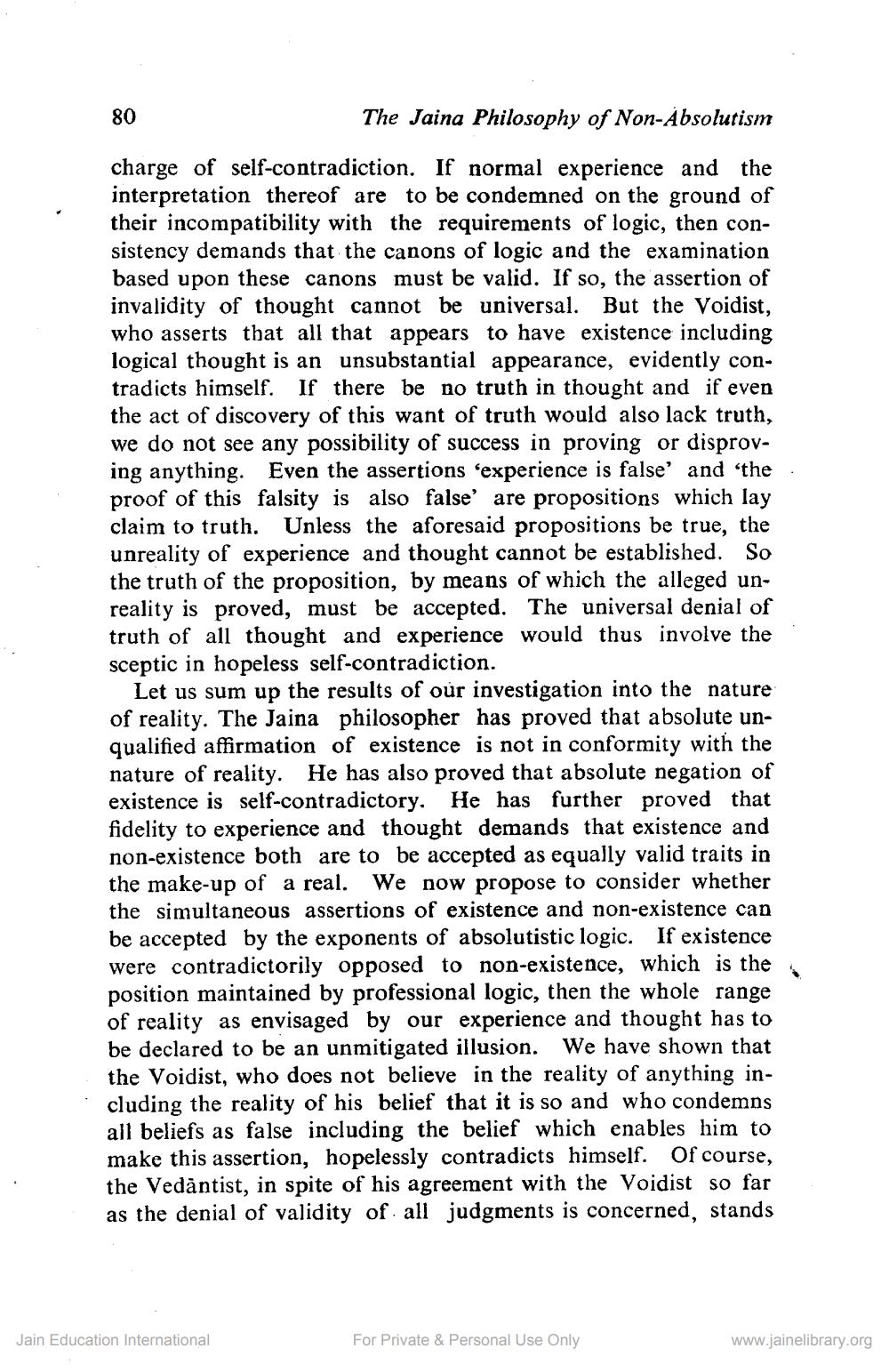________________
80
The Jaina Philosophy of Non-Absolutism
charge of self-contradiction. If normal experience and the interpretation thereof are to be condemned on the ground of their incompatibility with the requirements of logic, then consistency demands that the canons of logic and the examination based upon these canons must be valid. If so, the assertion of invalidity of thought cannot be universal. But the Voidist who asserts that all that appears to have existence including logical thought is an unsubstantial appearance, evidently contradicts himself. If there be no truth in thought and if even the act of discovery of this want of truth would also lack truth, we do not see any possibility of success in proving or disproving anything. Even the assertions 'experience is false' and 'the proof of this falsity is also false' are propositions which lay claim to truth. Unless the aforesaid propositions be true, the unreality of experience and thought cannot be established. So the truth of the proposition, by means of which the alleged unreality is proved, must be accepted. The universal denial of truth of all thought and experience would thus involve the sceptic in hopeless self-contradiction.
Let us sum up the results of our investigation into the nature of reality. The Jaina philosopher has proved that absolute un
lalified affirmation of existence is not in conformity with the nature of reality. He has also proved that absolute negation of existence is self-contradictory. He has further proved that fidelity to experience and thought demands that existence and non-existence both are to be accepted as equally valid traits in the make-up of a real. We now propose to consider whether the simultaneous assertions of existence and non-existence can be accepted by the exponents of absolutistic logic. If existence were contradictorily opposed to non-existence, which is the position maintained by professional logic, then the whole range of reality as envisaged by our experience and thought has to be declared to be an unmitigated illusion. We have shown that the Voidist, who does not believe in the reality of anything including the reality of his belief that it is so and who condemns all beliefs as false including the belief which enables him to make this assertion, hopelessly contradicts himself. Of course, the Vedāntist, in spite of his agreement with the Voidist so far as the denial of validity of all judgments is concerned, stands
Jain Education International
For Private & Personal Use Only
www.jainelibrary.org




